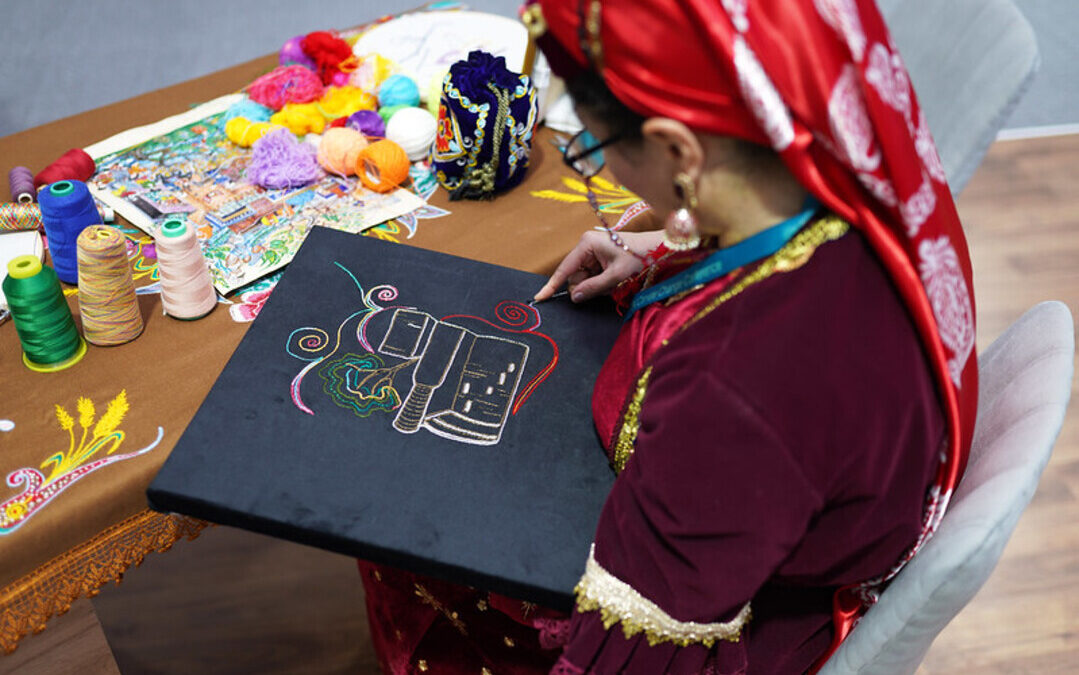Global Energy and Climate-Peace Agenda Gains Momentum at COP29
COP29 spotlights energy transitions and climate-peace nexus with bold pledges and global calls for action.
On the fifth day of COP29, global leaders, industry experts, and civil society convened to focus on the twin challenges of energy transition and the interplay between climate change and conflict.
The day, branded as Energy and Peace, Relief, and Recovery Day, underscored the urgency of coordinated action on climate and energy while addressing humanitarian and geopolitical crises.
Green Energy in the Spotlight
At the heart of the days’ agenda were three transformative initiatives aimed at scaling renewable energy and building resilient energy systems:
The Global Energy Storage and Grids Pledge had signatories commit to deploying 1,500 gigawatts of energy storage and upgrading 25 million km of power grids by 2030, addressing critical gaps in renewable energy integration.
The Green Energy Zones and Corridors Pledge held a vision to develop interregional grids connecting green energy generation with underserved communities, enabling secure and cost-effective energy transmission.
Finally, Hydrogen Declaration gave a call to scale renewable hydrogen production while decarbonizing the 96 million tonnes of hydrogen currently produced from fossil fuels.
International Energy Agency Executive Director Fatih Birol hailed the efforts: “To meet climate goals and strengthen energy security, we must prioritize energy storage and resilient grids. These pledges represent vital steps forward.”
Francesco La Camera, director-general of the International Renewable Energy Agency, emphasized the significance: “The COP29 Energy Initiatives are critical to achieving the global goal of tripling renewable capacity by 2030. Investment in storage and grids will be key enablers for this transition.”
Addressing Climate and Conflict
A parallel focus of the day was the launch of the Baku Call on Climate Action for Peace, Relief, and Recovery. This initiative addresses the nexus of climate change, conflict, and humanitarian needs, recognizing that climate-driven issues like water scarcity and displacement can exacerbate instability.
The Baku Call introduces the Baku Climate and Peace Action Hub, a platform to harmonize international efforts such as the COP27 Climate Responses for Sustaining Peace initiative and Germany’s Climate for Peace Initiative. It also aligns with Italy’s Mattei Plan for Africa.
“The time has come for peace-sensitive climate action,” said COP29 President Mukhtar Babayev. “This initiative prioritizes the most vulnerable communities, ensuring that climate interventions address both environmental and humanitarian crises.”
A Symbol of Unity
In a powerful demonstration of global solidarity, the COP Truce Appeal was unveiled. Supported by 132 nations and over 1,000 organizations, the Appeal underscores the inextricable link between peace and climate justice.
Advancing Decarbonization
Efforts to decarbonize heavy industry also took center stage with the launch of the Global Matchmaking Platform for Industrial Decarbonisation by UNIDO and the Climate Club. The platform connects emerging economies with technical and financial resources to transition energy-intensive industries toward sustainable practices.
Additionally, Azerbaijan partnered with IRENA to introduce the Accelerated Partnership for Renewable Energy in Central Asia. This initiative aims to expedite renewable energy investments and foster regional energy connectivity in Central Asia.
A Vision for the Future
The day concluded with commitments to the 10 GW Lighthouse Initiative, a program to catalyze renewable hydrogen projects in emerging markets. Backed by development finance institutions, the initiative aims to bring projects from proposal to implementation by 2030.
As COP29 progresses, the energy and peace commitments underscore the conference’s ambition to confront the intertwined crises of climate change and conflict while fostering innovation in renewable energy. With a focus on actionable outcomes, these initiatives reflect a growing consensus: the path to a sustainable future requires collective effort and bold leadership.
“At COP29, global leaders unveil bold initiatives tackling renewable energy challenges and the climate-conflict nexus for a sustainable future.”
Nirmal Menon
Related posts
Subscribe
Error: Contact form not found.

